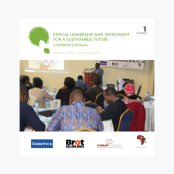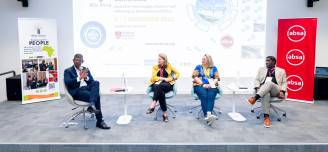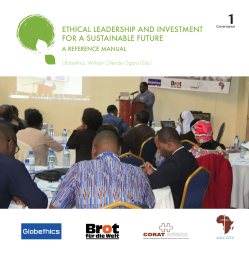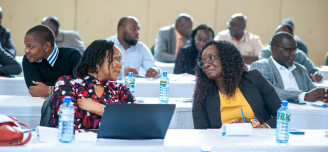Ethical investment and leadership manual launched
On 13 November 2024, Globethics, in collaboration with All Africa Conference of Churches (AACC) and the support of Bread for the World, organised a one-day hybrid event held at the Desmond Tutu Conference Centre (DTCC) in Nairobi to launch a reference manual developed as one of the outputs of the African Church Assets Programme (ACAP V).
A total of 227 participants attended the event in person, and 44 others joined online. Participants were drawn from several countries, including Kenya, Uganda, Tanzania, Rwanda, Burundi, Ethiopia, Democratic Republic of Congo, Zambia, Ghana, Nigeria, Togo, Germany, United States of America, Argentina, Netherlands, Switzerland, and Indonesia.
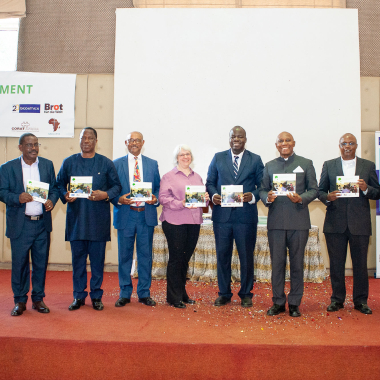
This manual, titled “Ethical Leadership and Investment for a Sustainable Future”, was anchored on a gap analysis that CORAT Africa was mandated to conduct. It is a tool kit that will enable churches and church-related organisations to scale up their actions aimed at promoting ethical investment and leadership. It is organised into three sections, with examples and tools to promote good practice and prevent issues, to advocate for ethical leadership and good practice as well as take measures when problems occur.
The first section recognises that churches have made considerable strides and need promotive and preventive tools to support leadership and ethical investment in their organisations. There is a growing space for good governance to be enhanced through well-established ethical leadership and investment programmes. Such programmes are now taking root in several churches with a growing younger generation that is technology savvy.
The second section is premised on the realisation that joint advocacy strategies will be needed to push some of the good initiatives that have emerged in churches. The advocacy initiatives will require the involvement of relevant authorities, including government authorities.
The third section is rooted in the theory that churches cannot be allowed to get away with malpractice. They must be bold enough not to allow members to get away with what constitutes illegal and/or unethical behaviour. There is a need to be courageous enough to report any misconduct in line with the laid down procedures. Unethical behaviour in any form should be dealt with decisively following the law to detain and deter would-be perpetrators.
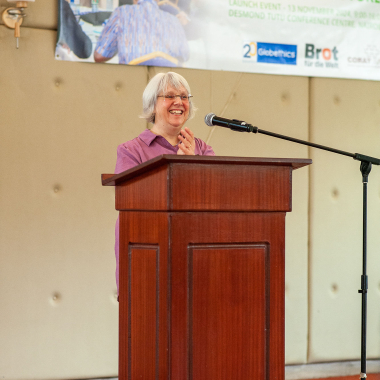
At the opening session, Globethics Deputy Executive Director Lucy Howe-López, who was present in person, said that “The Reference Manual on Ethical Leadership and Investment for a Sustainable Future is the culmination and concentration of learning on a journey that has taken some years, from plans made to activities carried out, and wisdom gleaned along the way. It is laid on the foundations of a shared commitment to the well-being and common good of the communities and organisations that we serve on this continent and elsewhere in the world, on ethical values and on faith.”
The Finance Director and Administration at AACC, Ms Phyllis Brewah, representing the Rev. Dr. Fidon Mwombeki, General Secretary of the All-Africa Conference of Churches, said that the ACAP manual will help bring about ethical leadership. Guidelines, rules and policies are needed to help us achieve our goals in a structured way. This contributes to the sustainability of church and church-related organisations.
Imke Tiemann-Middleton, the Bread for the World, Programme Officer / East Africa and the Horn of Africa joining the meeting virtually from Germany highlighted that the ACAP initiative, established in 2015, aims to promote sustainable resource management.
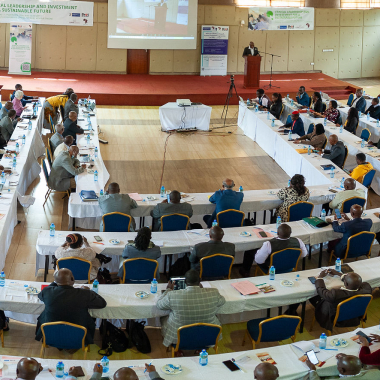
She said, “Globethics, in partnership with the All Africa Conference of Churches, has stepped in to address these critical challenges. … they have worked together to train leaders, map assets, and promote ethical investments, empowering Churches to manage their resources responsibly and sustainably. We all know that Churches play an essential role as both social forces and responsible entrepreneurs in their communities. By prioritising ethical investment, human rights, and environmental responsibility, Churches can set a standard for good governance and ethical stewardship.”
As such, there is a tremendous opportunity for the churches to improve on their stewarding of investment and cultivation of ethical leadership and investment in Africa.
